A Career in Marine Remotely Operated Vehicles (ROV) Industry [Q&A]
The marine industry offers a range of promising career opportunities to those who are ready to explore and are in pursuit of professional challenges. ROV industry is one such field that offers a unique opportunity to work with some of the most advanced marine technologies available in the market today.
SS Sidhu, a marine engineer working with a reputed ROV company, provides essential guidance on starting a career in marine ROV industry. If you are interested to work in ROV industry, this article will provide you the essential information needed.
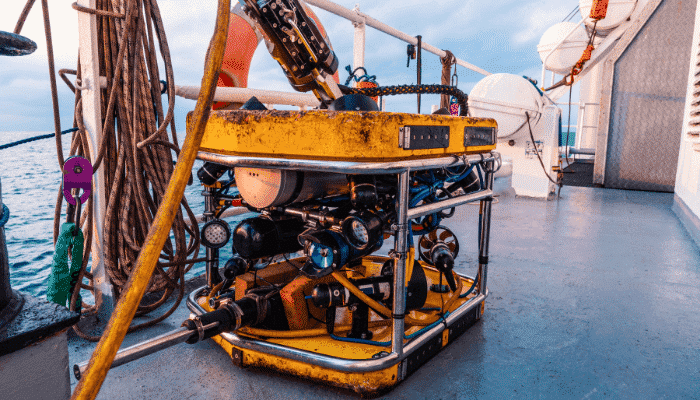
What is ROV?
ROV stands for remotely operated vehicles, primarily used for subsea operations. In simple terms it’s an unmanned subsea robot that is used for performing a wide variety of jobs under water. ROV’s are used extensively both in the initial construction of a subsea development and the subsequent repair and maintenance jobs.
History of ROV
The US Navy funded most of the early ROV technology development in the 1960s into what was then named a “Cable-Controlled Underwater Recovery Vehicle” (CURV). Building on this technology base, the offshore oil & gas industry created the work-class ROVs to assist in the development of offshore oil fields. More than a decade after they were first introduced, ROVs became essential in the 1980s when much of the new offshore development exceeded the reach of human divers.
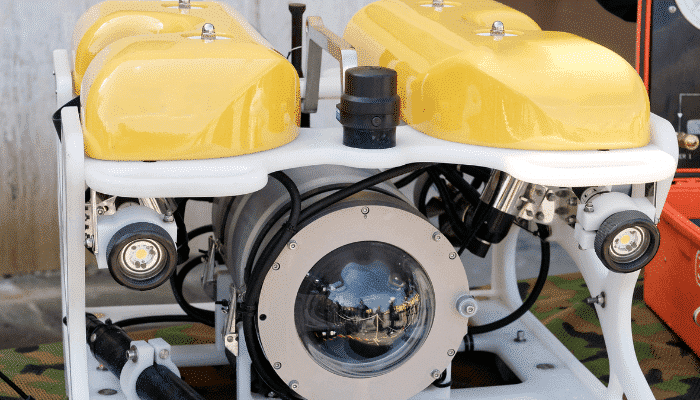
What are the Major Components of ROV?
A typical setup includes a Control Room (to pilot or control the ROV), Workshop (to carry out repair & maintenance work), ROV (Remotely Operated Vehicle), TMS (Tether Management System), Subsea Umbilical, Winch and an A-Frame (for launching and recovering a ROV).
Why ROV Industry?
One of the most bemusing questions, even before we begin our professional studies is – What career do I chose? One tends to take decisions in haste and usually ends up in a career which is not promising enough. It is therefore vital to chose the right career path which is both rewarding and challenging.
As a Marine Engineer, I was clear on what was in the box for me and I always knew that the job in Merchant Marine will be rewarding in all aspects. I had my fair share of sailing and enjoyed it thoroughly. I was introduced to ROV field back in 2008 and since than I could not think of more challenging and interesting job. It continues to baffle me even today and I enjoy every bit of what this field has to offer.
In a comparative study, it is much alike being an engineer or an officer onboard a ship when it comes to carrying out maintenance of a pump or replacing a broken part or carrying out scheduled maintenance for that matter; however, with an exception that you get to pilot an Unmanned Robot, which is submerged approximately 3000 meters of seawater, all sitting on a state of art pilot chair with touch screens and joysticks, much alike a cockpit. It’s certainly interesting and challenging at the same time.
What is Scope of Work In ROV Industry?
ROVs are typically stationed onboard a vessel or an Oil rig and are launched whenever a subsea work needs to be performed. Typically, the staff for a single system comprises of 3 people each on for a 12 hour shift with work duration of 1 month followed by a month long vacation. However, it may vary as per the job or company norms. Work scope includes launching the ROV, piloting to perform the intended job and maintenance of the equipment onboard.
As I mentioned earlier, working as a ROV technician or a pilot is very challenging mostly because ROV is an indispensable part of the oil rig and it has to be in working condition at all the times. If an ROV breaks down, it can cost a fortune to the oil rig, and thus ROV technicians have to be on their toes all the times, ensuring that the ROV is 100% ready for operations.
What I Need to Become a ROV Pilot/technician?
ROV is a mechatronic robot, meaning it comprises of both mechanical/hydraulic and electronic components. A graduate in Electronics, Mechanical, Electrical or Marine field are usually the right set of people for this job. This may again vary as per the company norms. One starts as a junior technician and can rise up to become a ROV Supervisor.
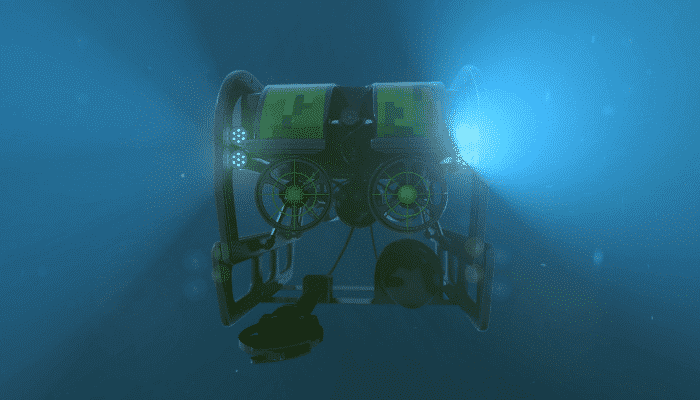
I Am Fresher, How do I start?
To kick start a career in ROV industry, an initial introductory training on ROV’s is essential and there are many training schools around the globe that offer such trainings. These trainings are usually paid but they can certainly help to get a job in the field.
Remuneration
This is one of the more important question which needs to be addressed and it will be fair to say that the salaries in the ROV industry are very competitive with Oil and Gas industry and you can easily earn as much as you do in a Merchant Navy job.
Have questions regarding starting a career in the ROV industry? Ask us at Marine Insight Forums.
Disclaimer :
The information on this website is for general purposes only. While efforts are made to ensure accuracy, we make no warranties of any kind regarding completeness, reliability, or suitability. Any reliance you place on such information is at your own risk. We are not liable for any loss or damage arising from the use of this website.
Disclaimer :
The information on this website is for general purposes only. While efforts are made to ensure accuracy, we make no warranties of any kind regarding completeness, reliability, or suitability. Any reliance you place on such information is at your own risk. We are not liable for any loss or damage arising from the use of this website.
Related Articles
⚓️ Enhance Your Knowledge. Prevent Accidents. Stay Safe at Sea.
1. eBooks for Engine Department
Master machinery operations, troubleshooting, and safety procedures with expertly written guides tailored for marine engineers. Prevent costly breakdowns and onboard accidents through practical knowledge.
👉 Explore Engine Department eBooks
2. eBooks for Deck Department
Sharpen your seamanship, navigation, and cargo-handling skills with real-world case studies and practical insights designed for deck officers and cadets.
👉Discover Deck Department eBooks
3. eBooks on Electrical Fundamentals & Issues
Understand marine electrical systems, identify potential faults, and prevent onboard electrical failures with step-by-step explanations from industry experts.
4. Pocket Guides for Quick Reference
Compact, handy, and loaded with essential checklists—perfect for on-the-go reference during operations and emergencies at sea.
5. Combo Packs to Save Big
Access multiple expert eBooks at discounted prices. Ideal for professionals seeking complete safety and operational knowledge across various ship departments.
6. Digital Maritime Courses – Learn at Your Own Pace
Upgrade your competence with Marine Insight Academy’s online courses. Learn from industry professionals anytime, anywhere, and become a safer, smarter seafarer.
Subscribe To Our Daily Newsletter
By subscribing, you agree to our Privacy Policy and may receive occasional deal communications; you can unsubscribe anytime.


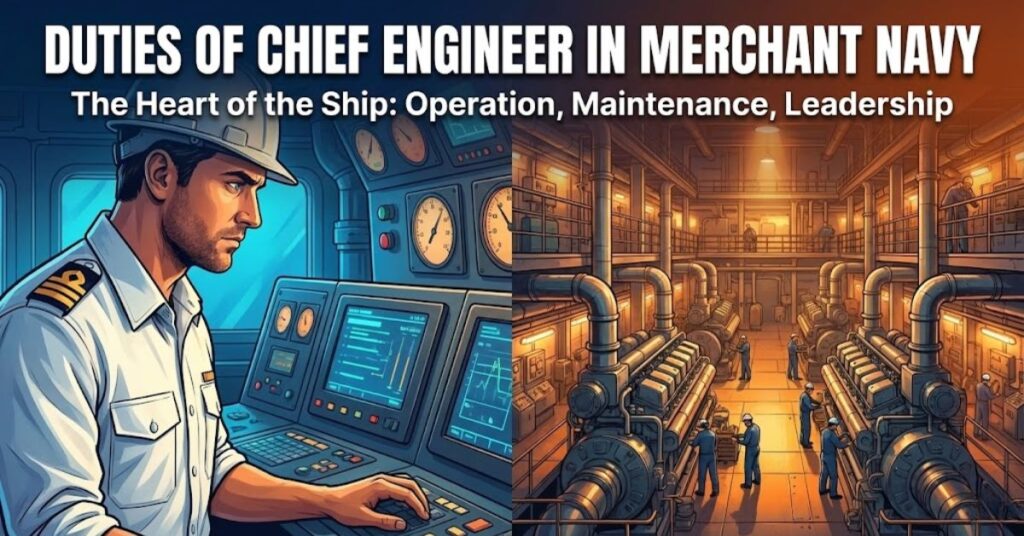
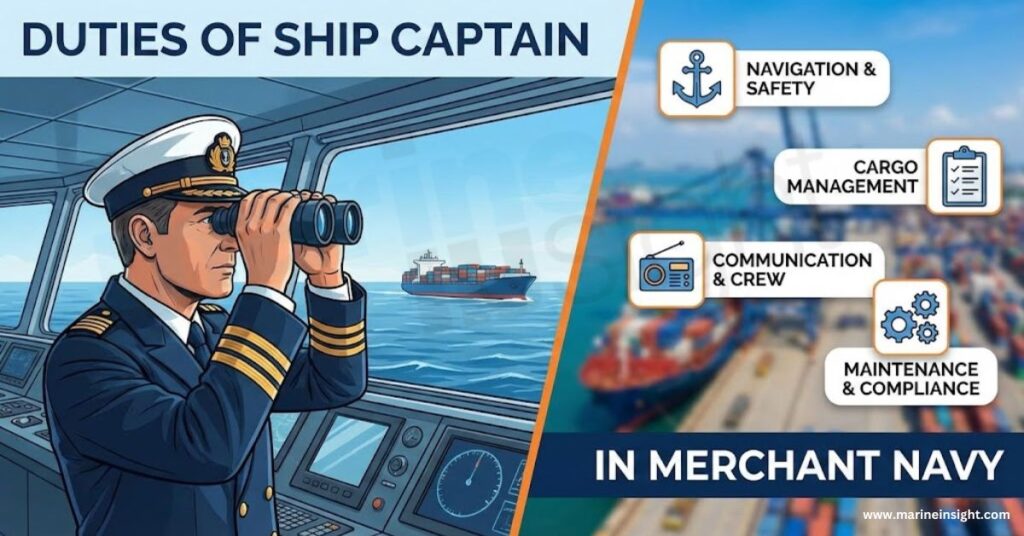




How do I get in touch with you Sir?
Wanted to talk to you about job opportunities.